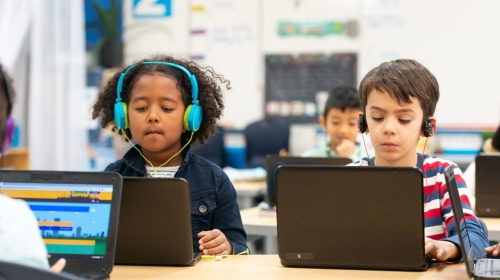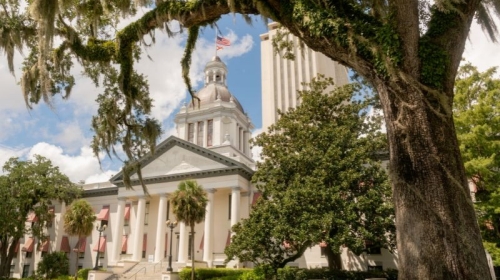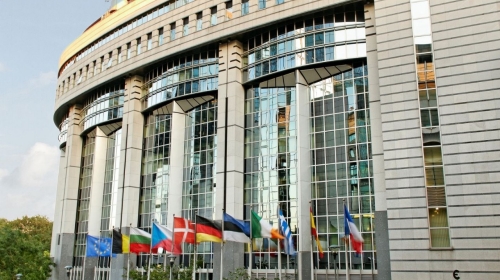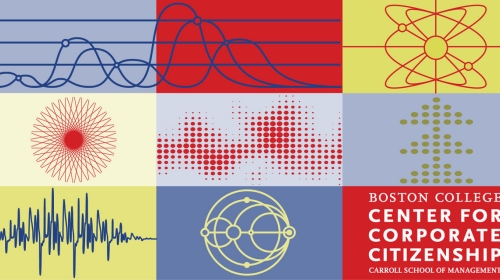WEBINAR: Re-watch this webinar to learn from leaders at EY and Microsoft about the keys to successful local engagement, the transformative power of mentorship, and the collaborative strength found in partnerships.
The Power of Partnership: Achieving More When We Work Together
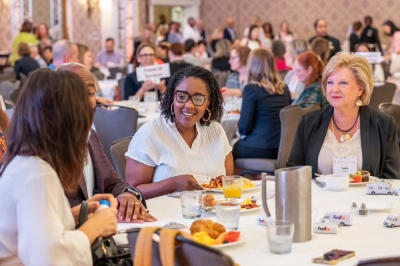
Monday marked the first full day of the 2024 International Corporate Citizenship Conference in Memphis! This morning, attendees looked forward to building on the big ideas of last evening’s uplifting opening session, which revealed the winners of the third annual Corporate Citizenship Innovation Awards. Today, participants jumped into a day filled with topical general sessions, plentiful opportunities to connect with colleagues, and practical panels, workshops, and case study sessions from which to learn.
BCCCC Executive Director Katherine V. Smith kicked off the first day with an overview of the current state of the corporate citizenship industry and how the Boston College Center for Corporate Citizenship can help its members navigate the ever-changing space.
“When the world looks at us, they see us as one entity,” said Smith. “But corporate citizenship is not only what happens in your corporate citizenship department, your community involvement department, your sustainability department, or your sustainable finance departments. All of these efforts have to work together to tell a cohesive story to achieve the best possible results for the company and for the world.”

Carbon capture and the proliferation of knowledge
Then attendees heard from convening sponsor FedEx about the company’s efforts to meet its climate goals through groundbreaking carbon capture research. Through a $100M grant to the School of the Environment at Yale University, FedEx helped establish the Yale Center for Natural Carbon Capture. Panelists Frederick W. Smith, Founder & Executive Chairman, FedEx Corporation; Dr. Indy Burke, Dean at the Yale School of the Environment; and Brie Carere, Executive Vice President & Chief Customer Officer, FedEx Corporation discussed the science of carbon capture and how the company’s investment in Yale Center for Natural Carbon Capture helps offset its emission.
Carere outlined the company’s sustainability strategy.
“When we think about sustainability, we ask ourselves three questions,” she said. “First, what do we need to do with our global operations? We’ve got 5,000 facilities in 220 countries and territories around the world, so we’ve got a lot of work to do. Second, when we think about our own operations, we also think about our customers’ operations. And then, of course, we think about the world at large, and our role in helping solve what is probably the most critical issue.”
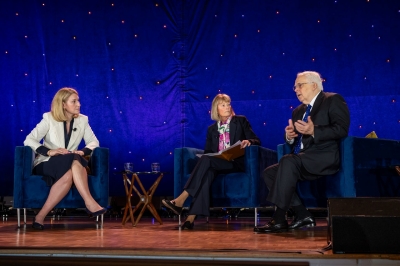
In line with the company’s strategy, Mr. Smith spoke about the seed of the idea that became the Yale Center for Natural Carbon Capture.
“Our facilities, more and more, are powered by renewables, so our footprint is becoming smaller,” Mr. Smith said. “But the biggest and most intractable problem is aviation. Sustainable aviation fuels are made from all kinds of materials, but the reality is they only produce about 1% of the fuel used to fly an airplane, and there’s no chemistry that changes that equation. So that means that air transportation—and all the good it’s created for the world, particularly the lesser developed world—would stop or become less available as the cost goes through the roof if you’re using economically unsustainable fuel. So, we began to think what we could do about this.”
Although environmental concerns can seem like a battle already lost, Dr. Burke offered an optimistic view on the importance of carrying carbon capture work into the future.
“I think the two most durable products we produce are knowledge and leadership,” she said. “We get young people—researchers, graduate students and postdocs, assistant and associate research scientists—involved in this work. They come and learn how important these problems are, and how to investigate the solutions. They get addicted to doing this kind of research, and then they go out into the world, where they can teach others.”
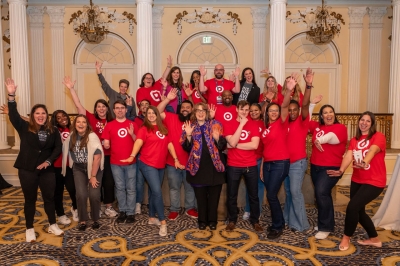
Customize your learning path at #BCConf24
After the session, participants enjoyed additional opportunities to network with a break hosted by Gallagher. Many participants also aided in this year’s volunteer activity, hosted by Target. Attendees worked together to assemble 300 kits and craft notes of encouragement for patients at St. Jude Children’s Research Hospital in Memphis.
At #BCConf24, attendees can tailor their experience to their specific interests and responsibilities by following different learning tracks. Learners can follow a single track throughout the conference, or mix and match depending on what breakout sessions, case studies, and workshops sound most useful!
During the first round of breakouts, participants chose between a variety of in-depth sessions on topics such as integrating community involvement into company culture; recession-proofing corporate citizenship commitments; streamlining ESG reporting across regulatory landscapes; and delivering health justice through a cross-sector approach.
As part of the Charles Schwab-sponsored workshop series, BCCCC Executive Advisor and Teaching Fellow Christopher Lloyd hosted a workshop breaking down the Diamond Framework for creating effective corporate citizenship strategies. The session guided attendees through aligning citizenship initiatives with broader business goals.
In BMO’s Monday morning case study, Putting People First, Designing A Stakeholder-Centric Strategic Giving & Volunteerism Program, Helen Seibel, Head of Employee and Community Giving at BMO Financial Group, talked about the company’s work with Corinne Graper, CEO of The Uplift Agency—how the two teams collaborated to design impactful programming using a four-step framework: 1. determine operational boundaries and limitations; 2. find the opportunity space; 3. identify the top three causes and big ideas; 4. select and build the program.
“BMO has an incredibly strong culture of employee engagement. Employees gave $31 million last year, in a two-week period, with 88% participation,” Seibel shared, in emphasizing the importance of stakeholder interviews and reconciling any new programming with a legacy environment of giving. “When you are the bank that underwrote the railroad across Canada… then you are a part of that community. You can’t ignore that.”
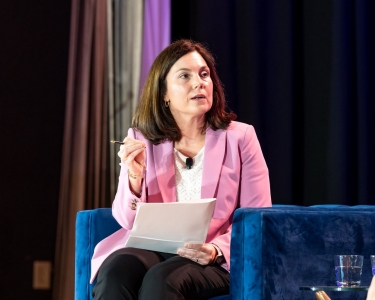
Building back communities, together
After an Idea Exchange luncheon, BCCCC Director of Executive Education and Advisory Services, Shyam Gadwal took the stage to introduce the next general session on creating resiliency for vulnerable communities, hosted by Travelers. Panelists Karraine Moody, Chief Executive Officer, Habitat for Humanity North Central Connecticut; Zack Rosenburg, Co-Founder and CEO, SBP; and Julie Shiyou-Woodard, President & CEO, Smart Home America engaged in a discussion moderated by Erin Haberman, Senior Director of Community Relations and Assistant Vice President of the Travelers Foundation, Travelers about the strength of partnerships in building secure homes and futures for families affected by severe weather and natural disasters.
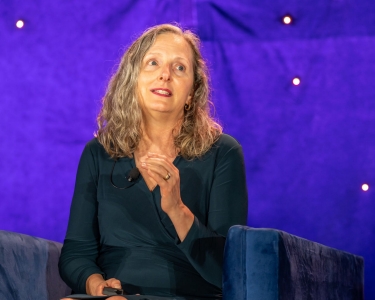
“We're at a point in time where we simply have to build the structure to be able to withstand the weather events as they increase with their frequency and severity,” said Shiyou-Woodard. “For our most vulnerable populations, we need to be building structures that if [homeowners] can't afford insurance, it is OK. If we really want to break that cycle, the local government has to know what they need to plan, they need to be brave enough to do it, and everybody needs to be educated. Every person who touches that structure needs to understand why it’s important. And that’s why our partnership with Travelers is just vital, because it takes a couple years to get everybody to that point.”
Stay tuned as we cover more highlights from Memphis and the 2024 International Corporate Citizenship Conference!
Related Content
The Federal Trade Commission (FTC) adopted a final rule prohibiting usage of almost all non-compete clauses by employers and will require employers to rescind existing agreements, except for those that apply to senior executives.
Governor Ron DeSantis signed legislation that prohibits the sale of lab-grown meat in the state of Florida.
The U.S. Department of Health and Human Services (HHS) recently amended its privacy regulations under HIPAA to ensure additional protections for protected health information (PHI) connected to reproductive health care.
The Financial Conduct Authority (FCA), Britain’s financial regulator, is setting forth a rule to fight greenwashing among investment firms.
EU Parliament adopted a set of rules calling for stronger laws against violence against women and domestic violence, including cyberviolence, better assistance for victims of assault, and steps to prevent rape.
REPORT - Survey results reveal this path to success in corporate social responsibility (CSR) and business success. Read the latest findings on how to create business AND social value.
The U.S. Fish and Wildlife Service (FWS) and the National Marine Fisheries Service (NMFS) finalized a recent set of revisions to the Endangered Species Act that were rolled back under the previous presidential administration.

